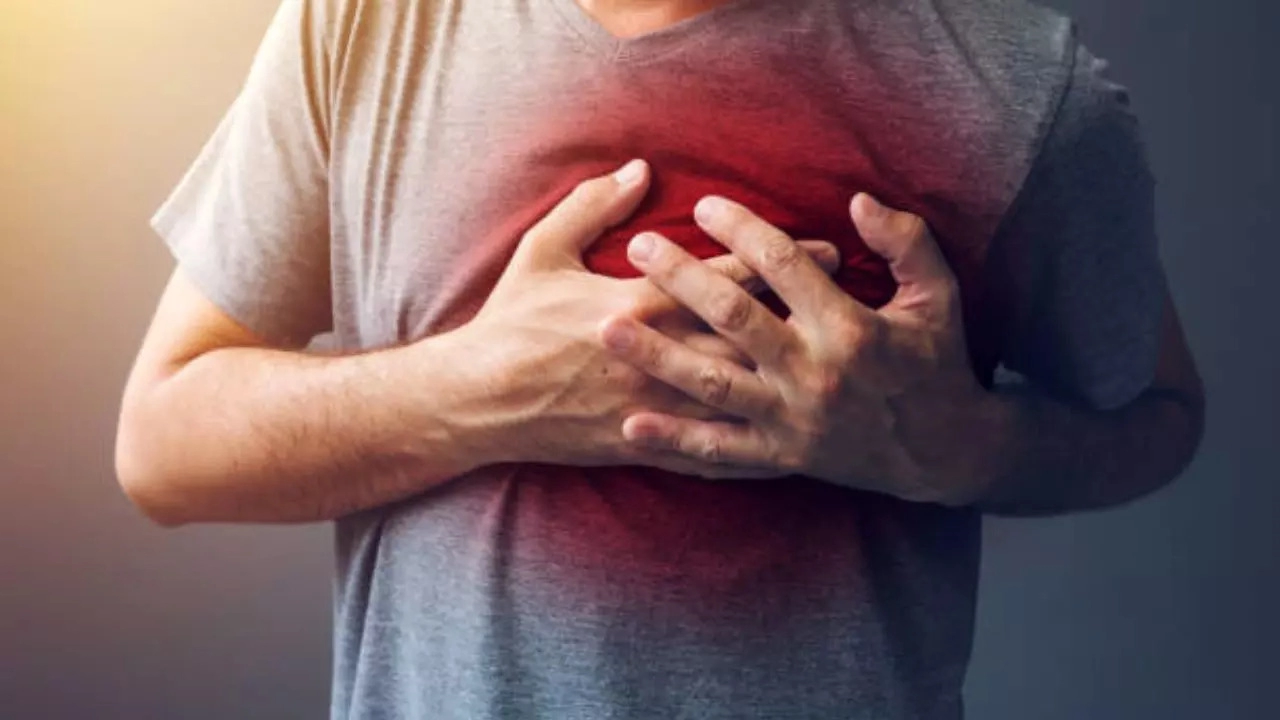Ashima Sharda Mahindra • 24 Aug 2024
Signs Your Acidity May Be Heart Attack; Know Ways To Take Care Of Your Cardiovascular Health

Acidity - one of the most common conditions feels like a burning sensation in the chest, so does a heart attack
A heart attack is a medical emergency.
Also known as a silent killer as it rarely exhibits any symptoms – it happens because you don’t have enough blood flow to your muscles. According to health experts, many times it might not even cause chest pain or breathlessness – the typically associated symptoms of a heart attack, also known as myocardial infraction.
A silent heart attack, known as a silent myocardial infarction or SMI, which accounts for 45 per cent of heart attacks, strikes more men than women. A few of the signs are so mild and brief that you may either feel it is acidity or just ignore them.
Doctors say many people associate heartburn or feelings of uneasiness with gastric troubles and do not even bother contacting a healthcare professional. This, combined with many other factors, is responsible for more than 18 million deaths worldwide, annually.
How are acidity and heart attack similar?
Even though acidity – one of the most common conditions anyone can have - feels like a burning sensation in the chest, so does a heart attack – and that is what makes the distinction difficult, almost impossible. Experts say a few simple, yet profound ways to distinguish between the two include:
- Acidity always feels heavy on the upper part of the chest, leaving a sour or bitter taste in your mouth due to burps.
- A typical characteristic of acidity, according to Harvard Health, is that it always results in regurgitation, a condition where a small amount of stomach content comes back to your mouth.
- A heart attack would always feel like intense pressure on the chest like it is about to explode.
- In a heart attack, the pain always flows upwards - from the chest to the shoulder, neck, jaw, and back.
- If you have a heart attack, you would be breathless, and immediately suffer from cold sweat and dizziness.
- The location of the pain is many misunderstood, as you may feel discomfort in the center of the chest and not a sharp pain on the left side, which many people associate with a heart attack.
When should you act?
According to doctors, if you have just finished exercising or conducting a high-intensity workout, and experiencing excruciating pain in the chest, immediately go to a hospital without wasting any time.
Can other digestive issues cause chest pain?
A muscle spasm in your esophagus may cause chest pain similar to that of a heart attack. The pain of a gallbladder attack also can spread to your chest, causing severe nausea and an intense, steady ache in the upper middle or upper right abdomen — especially after a fatty meal.
The pain may shift to your shoulders, neck, or arms. Again, if you are not sure seek medical attention immediately.
Ways to take care of your heart health
A few expert-backed ways to take care of your heart health, include
- Exercise for at least 150 minutes per week like walking at a brisk pace. You can also try 75 minutes of vigorous activity, like running, or two or more strength training sessions per week. Exercise can help lower blood pressure, improve cholesterol, and boost your energy.
- Eating a healthy diet, which includes fruits and vegetables, whole grains, low-fat dairy, lean protein, nuts, and legumes can help you keep your heart free of cholesterol
- Try keeping your weight to the prescribed level
- Quit smoking to lower your blood pressure and heart rate
- Try doing meditation, yoga, a warm bath, or quiet time with a book or movie to help manage stress.
Get Latest News Live on Times Now along with Breaking News and Top Headlines from Health and around the world.